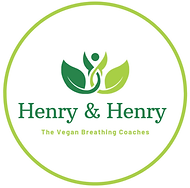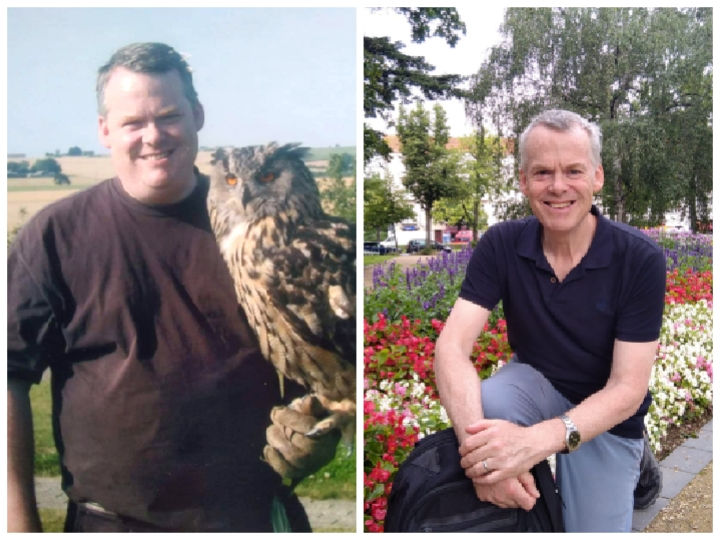Whole Food Plant Based Diet - What is it? And Why is it so Vital?
- Henry & Henry

- Feb 2, 2021
- 7 min read
Updated: Feb 4, 2021
What do we mean by a Whole Food Plant Based Diet? To answer this, it's important to make the distinction between foods that present in their original form when picked, plucked or harvested, and those foods that have undergone a change that involves either the removal of nutrients or the addition of nutrients or other substances such that the end product is no longer recognisable as that which it originated from. We generally use the term "Wholefoods" to describe the first category and "Processed Foods" for the second category.
A Whole Food Plant Based Diet, for our purposes, consists largely of fruits, vegetables, legumes, whole grains, nuts and seeds. There are certain other categories of food that we incorporate in our diet from time to time that are not wholefoods in the strictest sense of the definition, for example Miso, a fermented soy product that we regularly use as a condiment for adding a savoury ‘umami’ flavour to dressings and soups. Other examples are nut and seed butters (eg. almond butter, tahini) where the raw nut or seed has been roasted and then ground until acquiring a smooth and runny consistency, though we do sometimes consume these in their ‘raw’ form when we can find them or when we are able to make our own. These foods are generally termed as ‘minimally processed’ and we prefer to use these more sparingly in our diet.

It may come as a surprise to hear that we don’t consume any oils, even in dressings. We prefer to use chia seeds, flaxseeds or hemp seeds instead, which are rich in omega 3 fats and other important nutrients and lend themselves very well to dressings. This way, we are using the whole food version with the fibre intact. Think about it, when using olive oil or sunflower oil, for example, in terms of macronutrients, all you get is 100% fat, with no fibre. Empty calories. Is this what nature intended? Why not eat whole olives or sunflower seeds? Nowhere in the plant kingdom do we find a root, leaf, seed, nut, legume or grain that consists of 100% fat and nothing else. It will always contain protein, carbohydrates, fat and fibre in differing ratios depending on the plant. In this way, by adopting a way of eating that is based on a variety of wholefoods, we can ensure we are getting everything our bodies need to thrive and flourish.
A characteristic of the modern Western diet (perhaps we should now call it the modern global diet, since diets around the world have become largely homogeneous) is the preponderance of highly refined and ultra processed foods which contain large amounts of unhealthy fats, sugar, salt and additives and little or no fibre. It is here that we firmly believe we have taken a wrong turn. Though we may think that we have control over what we eat, the responsibility for our diet has been usurped by an often cynical food industry that is purely focused on selling more and making money for its shareholders with often scant regard for the welfare of consumers. They have done this through stealth, as they have manufactured foods that are designed to give us pleasure, that tempt and tantalise us so that we crave more and more. This has gradually distanced us from the experience of eating wholefoods, which to many seem dull and unexciting in comparison to the ‘artificial’ foods that are created with the sole intention of getting us hooked so we buy more. Sadly, this is to our detriment and is one of, if not the leading cause, for the huge increase in diet-related lifestyle conditions we see today.
This is why we wish to restore the balance and to inspire people to experience for themselves the sheer power of whole plant foods and their ability to boost our health, as it has for both of us. We have been similarly inspired by the examples of populations that fare better when they follow a diet based largely on whole plant foods. One example is the famous study based on the so-called Blue Zones, which examined a number of longevity hotspots around the world and distilled the lifestyle characteristics that inhabitants in each region had in common. One of the common factors was that the inhabitants ate a plant-strong diet based on wholefoods and where processed or refined foods were rarely if ever eaten. Encouraged by what we read and heard from many similar studies, we have both made our own separate journeys of recovery from health conditions that we hadn’t realised may have had a root cause in what we ate, or at least for which diet was a contributory factor. Our individual stories can be found on this site under our names: Graham and Annette so we will not go into detail here, but a transition to a diet based on the consumption of plants and that excludes meat, eggs and dairy, has been the spark that has ignited us with a desire to reach out to others and to share our experience and our joy at the discovery of this way of eating.
Whilst health has been the original driving force behind our move towards a diet that's not only free from animal products but is also based on whole plant foods, it's become increasingly evident to us that there's a bigger picture. The bigger picture points towards (w)holism in its most practical sense. A diet based on whole natural plant foods clearly lends itself to a more harmonious relationship with our own planet, our home, than any other dietary choice does. The two of us don't claim to be experts in environmental science, but this should not absolve us of the responsibility to listen to those who are better able to understand the predicament the global community faces by choosing to turn a blind eye to the clear and alarming signs of demise facing our natural world. Rather than present facts and figures here, we urge you to inform yourself via any reliable sources available to you of the impact of animal agriculture on the land, our waterways, the level of emissions of harmful gases in the atmosphere and right across to the impact of industrial food processing and plastic use. A plant based diet makes huge strides towards reducing the burden of planetary sickness, in fact how often do we hear that it's the single most potent step any individual can take in respect of the climate emergency? When the plant based diet is a wholefoods diet then not only does human health improve, but the additional burdens of modern mass food processing and packaging are lessened, thus giving planetary health an increased chance of success.
Of course there's another huge component of this 'bigger picture', and it's that of the animals themselves. This one feels a little more complex for us because, like many other people, we were born into a culture that sees the commoditization of animals as normal. Additionally, it normalises the segregation of animals into categories e.g. companion animals versus those bred for the sole purpose of being raised and slaughtered for meat production. There will be few people in Western societies who don't see the consumption of dogs in other areas of the world as abhorrent, and yet the cultural 'permit' that enables this custom is no different from that which is familiar to us, the only difference is the status we confer on the animals in question. It took the two of us some time to view our cultural norms with different eyes, and it makes us reluctant to employ emotional arguments to 'redirect' others; who are we to do that when, for much of our lives, we ignored them ourselves? Does this mean that we choose to quietly sidestep the issue of animals used for food? No, it doesn't. There is still more to consider.
We need to bring antibiotic use into the conversation: animal agriculture places greater demands on antibiotics than any other sector, including medical health services. Overuse of antibiotics (and that is certainly the case when they're routinely administered to healthy animals) is driving bacterial resistance which could prove devastating for us.
We need to talk about the suitability of milk and other dairy products in the context of both human health and the practice of separating male calves from their mothers, often to be 'destroyed' as they are not financially profitable; many of us struggle with this concept once we are aware of it.
And we need to have an open and honest discussion about the working lives of slaughterhouse employees. We feel it is to the credit of the German government that such a discussion did at least begin when very high numbers of Covid 19 amongst workers in a number of these factories led to their temporary closure. Such closures didn't only happen in Germany, but Germany certainly gave the matter a lot of air time across its media. And it raised a lot of uncomfortable questions about pay, working conditions and the nature of a job which demands that a human being physically ends the life of another living being when the latter poses no danger to him or her. Are there mental health consequences of this work? It would appear that there are.
But perhaps now more than ever we absolutely have to think about our relationship to, and use of animals. Covid 19 is unlikely to be the last pandemic to hit humanity and neither was it the first. We have enough experience now to know that viral and bacterial infections of this kind can quite easily originate in animals and spread to human populations. There's no timetable for these outbreaks; we could be lucky and perhaps not see another in our lifetime, or there could be another just around the corner, especially if we make it easy by perpetuating factory farming where thousands of birds or animals can be kept in extremely close proximity to each other. Do we wait and see? Or do we take action to at least reduce, or maybe even eliminate our demands for animal protein?
We, Graham and Annette, most definitely do understand the challenges of making significant dietary changes. We've been there! Some parts were easy, whilst other elements were not; all of us at some time find ourselves stuck in the pleasure trap and we are no exception. But we can say with confidence that getting to the ‘other side’, where our food supports our own health, makes good planetary health more likely, and enables us to see the ways in which we are inextricably linked to the other beings with whom we share the planet, is a source of joy to us, and this most definitely includes the pleasure we derive directly from our meals. We hope you will join us in this vital conversation about plant based nutrition, and we hope you will be very glad you did.
References and Additional Information
- For more information on the Blue Zones, please click here
- For an in-depth examination of why health professionals should care about the use of animals for food, we encourage you to watch 7 health professionals making very compelling cases here



)_20230830_134131_0000.png)



Comments